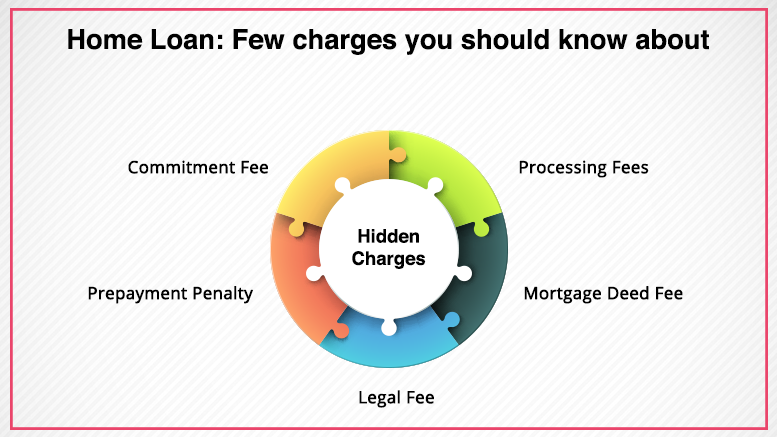
- About Us
- OUR OFFERINGS
- CALCULATORS
- RESOURCE CENTRE
-
Quick Links
- Existing Customers Benefits
- Become a Partner
- Pre-Approved Projects
- Home Loan App
- Blog
- CSR
- Locations
- Roi Switch Policy
- Co-Lending Policy
- Co-Lending Partnerships
- Customer Sensitization Program
- ROI Range
- Borrower Education - SMA/ NPA classification
- Borrower Awareness - RBI Ombudsman Scheme
- Borrower Awareness - procedure for handover of property documents
- NEWS CORNER
-
INVESTOR RELATIONS
- Financial Reports
- Investor Presentations
- Annual Reports
- Notices
- ESG Profile
- IEPF
- Investor Call Transcript
- Corporate Announcement
- Public Issue of NCD'S
- Qualified Institutional Placement
- Investor Relations Contact
- Familiarisation Programmes
- ISO CERTIFICATIONS
- Forms for Shareholder KYC-PAN-Nomination update
- Credit Ratings
- Statutory Advertisements
- ODR Portal
- Rights Issue
- Sustainable Financing Framework
- CONTACT US
- Login
 Apply
ApplyOnline

India's 1st Completely Online Home Loan!
-
e-APPLY
-
e-SANCTION
-
e-DISBURSE
Start your eHome Loans Process Now!
Apply OnlineWhy do lenders ask for ITR documents and how to file ITR for home loan?

- May 28, 2019
- VIEWS: 9050
Why do lenders ask for ITR documents and how to file ITR for home loan?
Buying a home is a huge financial investment. Most people cannot afford to purchase a home without opting for a home loan. When you apply for a home loan, you are required to provide several documents, failing which lenders do not approve loans. One of the most important documents that your lenders ask you to provide during the loan application process is your Income Tax documents. You need to provide proof that you have filed your returns to even be eligible for a home loan. Let’s find out why is ITR required for home loan.
Why do lenders ask for ITR documents?
Income Tax returns or ITR is essentially the acknowledgment document you receive from the income tax department for paying your taxes. This document is also requested by borrowers when you apply for a loan of any kind. In fact, lenders will consider you ineligible for home loan without ITR. Here’s why lenders ask for your ITR documents.
It helps lenders assess your income and repayment capacity: Income tax needs to be filed as per the salary slab you belong to. When you file your ITR, lenders become aware of your annual income. Lenders use your ITR documents to determine if you earn sufficient income and would able to pay your loan instalments on time. Typically, you would be asked to provide your ITR of the last three years or more.
It helps lenders see that you have a stable source of income: The reason why lenders ask for 3 years of ITR for home loan is so that they can ensure you have a stable source of income; that income is being credited in your savings account month after month, and that it is increasing with every passing year, like it happens in a steady job. Also, as per home loan eligibility criteria, an individual needs to be employed for a minimum period of 3 years for his loan to be considered. This will show your lender that you have been employed for three years at least and are paying your taxes. A steady stream of income is seen as a guarantee that you will not default on EMI payments.
It shows the lender that you are financially responsible person: As a law abiding citizen of the country, you are obligated to pay taxes every year. Filing ITR for home loan shows the lender that you are exercising your financial responsibilities. On the other hand, if you have not filed your ITR, your loan application would not only be rejected, but you would also be prosecuted by authorities after which no lender would accept your loan application.
Steps for filing ITR for home loan
In case of a home loan you need to submit ITR form for home loan in case of self-occupied property. You can find the form details on both, your lender website and the official income tax department website. Just follow the below mentioned steps:
- Fill your personal details – name, address, PAN and Aadhaar Numbers in the slots mentioned.
- Under ‘salaries’, you need to enter your chargeable income after referring to form 16.
- Check the ‘self-occupied property’ box (B) and enter the interest amount you are paying on the principal loan amount. Enter ‘zero’ as the annual value of the self-occupied property.
- Include income from other sources, if any.
- Calculate the Gross Total Income (GTI) i.e. B1+ B2+B3 = B4.
- Enter the deductions applicable as per various Section 80s of the IT Act and add them.
- Now, complete the GTI/B4-C1 calculation and arrive on the box titled ‘G2’ i.e. total income.
- Furnish savings account details to prove your calculations.
Final words: A home loan not only makes it easy for you to make a significant investment conveniently, but also comes with innumerable tax benefits. As a borrower, you can accrue several benefits under Section 80 EE and Section 24 of the Income Tax Act which make it possible to increase your savings. Remember, to increase your chances of getting your home loan passed, do not apply for a home loan without ITR.
No Comments
Subscribe
Most Viewed Blogs
Categories
- Home Loans Guide 125
- Home Renovation Loan Guide 3
- Home Loan Transfer Guide 14
- Home Extension Loans Guide 1
- Loan Against Property Guide 28
- Home Loan Interest Rates Guide 2
- Others Guide 8
- Home Decor & Lifestyle Guide 5
- Plot Loan Guide 3
- PMAY Guide 5
- Uncategorized Guide 1
- NRI Home Loans Guide 5
- Financial Resolutions Guide 1
- New Year Resolutions Guide 1
Archives
- Mar 2020
- Jan 2020
- Nov 2019
- Jul 2019
- Jun 2019
- May 2019
- Apr 2019
- Mar 2019
- Feb 2019
- Jan 2019
- Dec 2018
- Nov 2018
- Jul 2018
- Jun 2018
- May 2018
- Apr 2018
- Mar 2018
- Feb 2018
- Jan 2018
- Dec 2017
- Nov 2017
- Oct 2017
- Sep 2017
- Aug 2017
- Jul 2017
- Jun 2017
- May 2017
- Apr 2017
- Mar 2017
- Feb 2017
- Jan 2017
- Dec 2016
- Nov 2016
- Oct 2016
- Jun 2016
- Apr 2016
- Mar 2016
- Feb 2016
- Jan 2016
- Dec 2015
- Nov 2015
- Oct 2015
- Sep 2015
- Aug 2015
- Jul 2015
- Jun 2015








